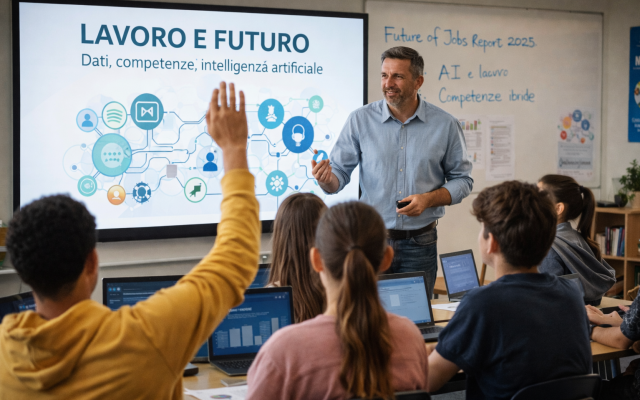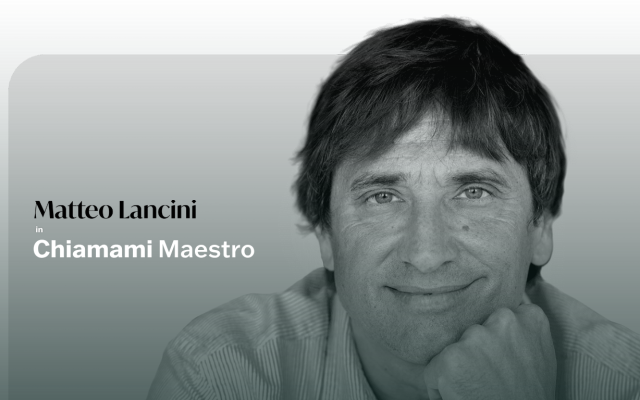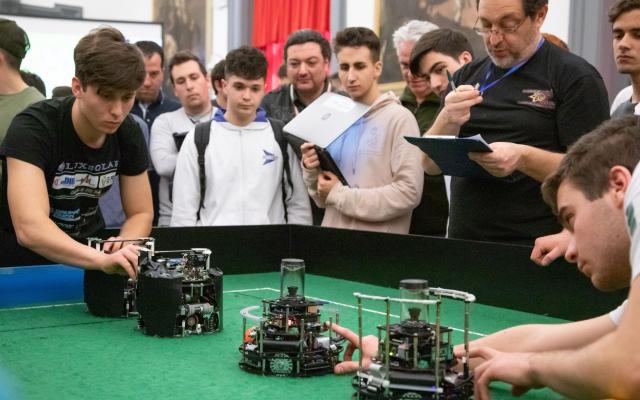Most Promising Researcher in Robotics & AI and the challenges for the future of the country
The recent award ceremony for the Most Promising Researchers in Robotics & AI, promoted by the Fondazione Mondo Digitale, turned the spotlight on a topic that is central to the country's development: the strategic value of scientific research. The award was chaired by Paolo Dario, a pioneer in robotics and one of Italy's most authoritative scientists in the field of bioengineering. We will try to interweave his testimony, rich in passion and awareness, with the in-depth analysis of the Report by Giulio Perani for Aspen Institute Italia, which accurately captures the state of research in Italy, between recognised excellence and structural challenges to be addressed.
From backwardness to excellence
‘When I started doing research, there were shootings in the streets in Italy and no one knew what scientific research was,’ recalls Paolo Dario. ‘I didn't know much about it myself. But I decided to stay and explore uncharted territory.’ At that time, the country did not even have a PhD programme. Today, however, Dario describes it as “among the most advanced in the world in terms of research capabilities”.
The progress is evident, even if technology transfer remains a weak point. “We are not yet at the forefront of transforming scientific results into industrial applications and new businesses,” he notes. Yet his confidence remains unshakeable: 'In this country, if you have good ideas, they almost always let you get on with it. You have to learn to navigate with your inner compass: intuition, ambition and an international spirit.‘
One point that Dario proudly emphasises is the quality of Italian researchers: ’They are absolutely on a par with the best in the world, particularly in robotics and artificial intelligence, but not only there."
Research figures: between records and gaps
This view is reflected in the figures. According to the Perani Report, Italy invested €27.3 billion in research and development in 2022, ranking third in the European Union in terms of absolute expenditure. However, the percentage of GDP remains below the average: 1.39% compared to 2.77% in the EU. Growth in recent years has been driven mainly by the private sector, supported by a system of tax incentives for R&D.
In terms of quality, Italian research is in line with European standards: universities perform very well in disciplines such as physical, medical and biological sciences, while the country also excels in the management of world-class scientific infrastructure, participating in 45 of the 66 European ESFRI platforms.
Structural challenges: from brain drain to technology transfer
Despite these successes, significant challenges remain. Dario puts it clearly: “We still lack a strong ecosystem that can transform knowledge into concrete impact”. The Italian manufacturing sector still accounts for most of the country's inventive activity, but strategic sectors such as electronics and software remain underdeveloped. The only exception is STMicroelectronics, which is almost isolated in the national landscape.
The brain drain is also a factor. Italy has a negative balance of researchers leaving the country and is unattractive to foreign doctoral students, who account for just 10% of enrolments. Added to this is a fragmentation of skills between ministries and local administrations, and a high incidence of personnel costs in public R&D spending (up to 78% in some institutions), which limits investment in infrastructure and laboratories.
Knowledge, synergies and strategic vision
For Paolo Dario, Italy's future depends entirely on knowledge. This is the direction in which the PNRR is trying to push, with funding for extensive partnerships, national centres and innovation ecosystems, and models of interdisciplinary collaboration that combine basic research, industrial application and local involvement.
In this context, initiatives such as those of the Fondazione Mondo Digitale take on symbolic value. ‘The quality of the award-winning researchers is extremely high,’ says Dario. ‘And awards like this are essential for recognising and stimulating passion, expertise and vision.’
Conclusion: investing in the future
At a time when global competition for knowledge is increasingly fierce, investing in research, young people and strategic synergies is not only desirable: it is essential. Paolo Dario's voice and the commitment of organisations such as the Fondazione Mondo Digitale remind us that there is no shortage of talent in Italy. What is needed now is a system that truly believes in it.




